Casino uden om ROFUS: lovlighed, risici og alternativer (2025)

Casino uden om ROFUS refererer til online casinoer, som ikke er tilknyttet det danske selvudelukkelsessystem ROFUS. Mange danskere (25–55 år) søger viden om disse udenlandske casinoer – typisk for at forstå reglerne omkring lovlighed, skattepligt, licenser, sikkerhed og de potentielle risici ved at spille uden om ROFUS. Denne guide fra 2025 giver et neutralt og faktabaseret indblik i emnet, så du kan træffe informerede valg. Vi gennemgår, hvad det vil sige at spille på et casino uden ROFUS, hvordan lovgivningen ser ud i Danmark, hvilke licenser der findes, skatteregler for gevinster, KYC/MitID-krav, bonusvilkår, spiludvalg, fordele og ulemper – alt sammen med fokus på ansvarligt spil. Læs videre før du spiller – ansvarligt & sikkert.
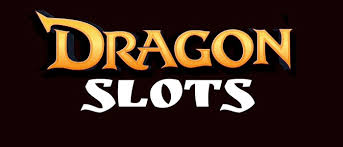

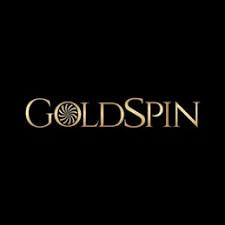
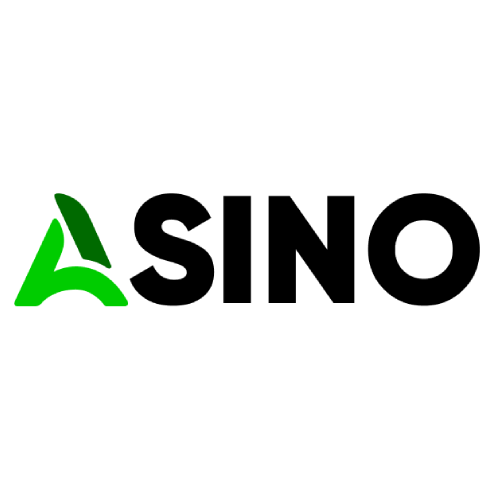

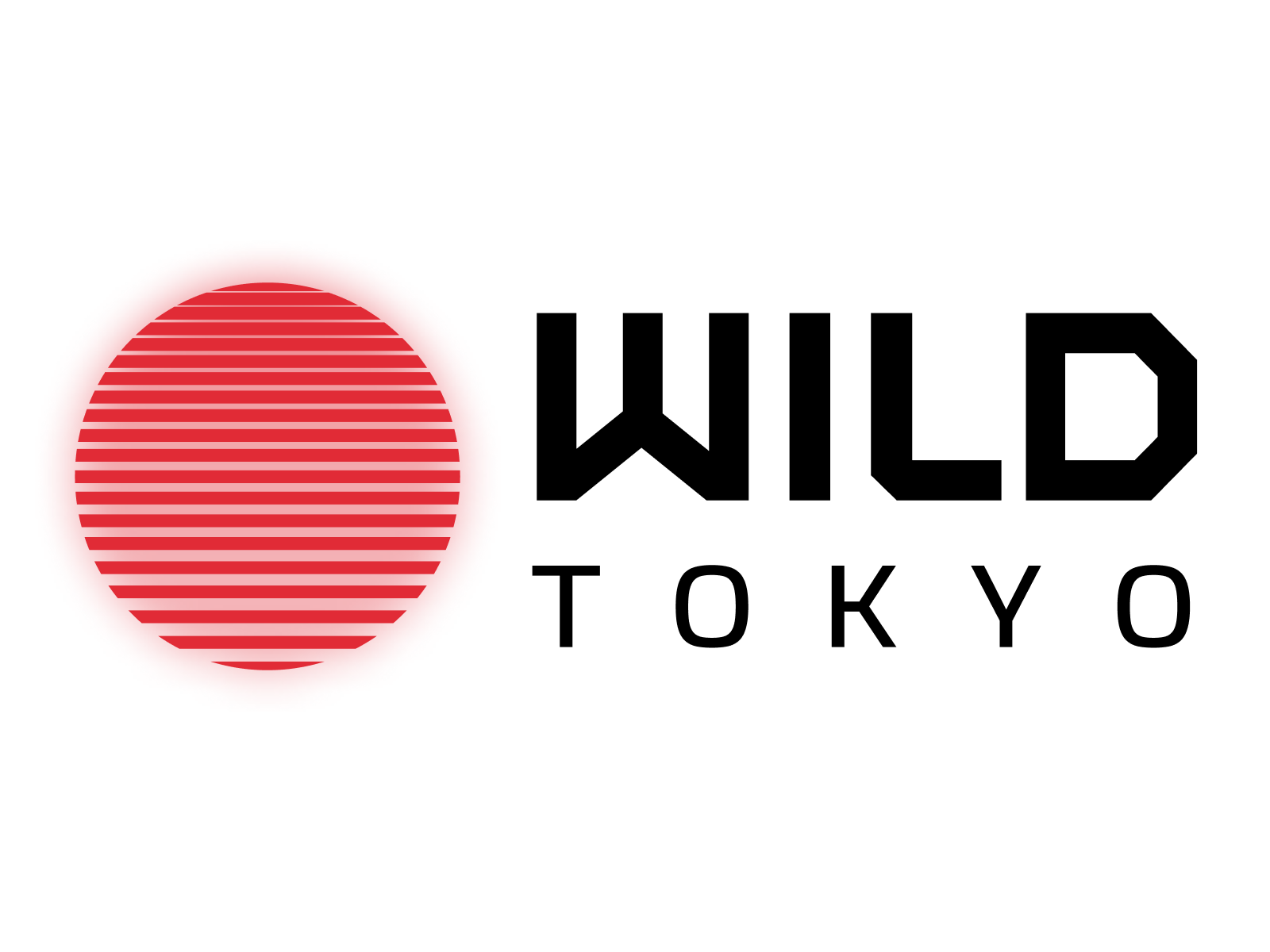
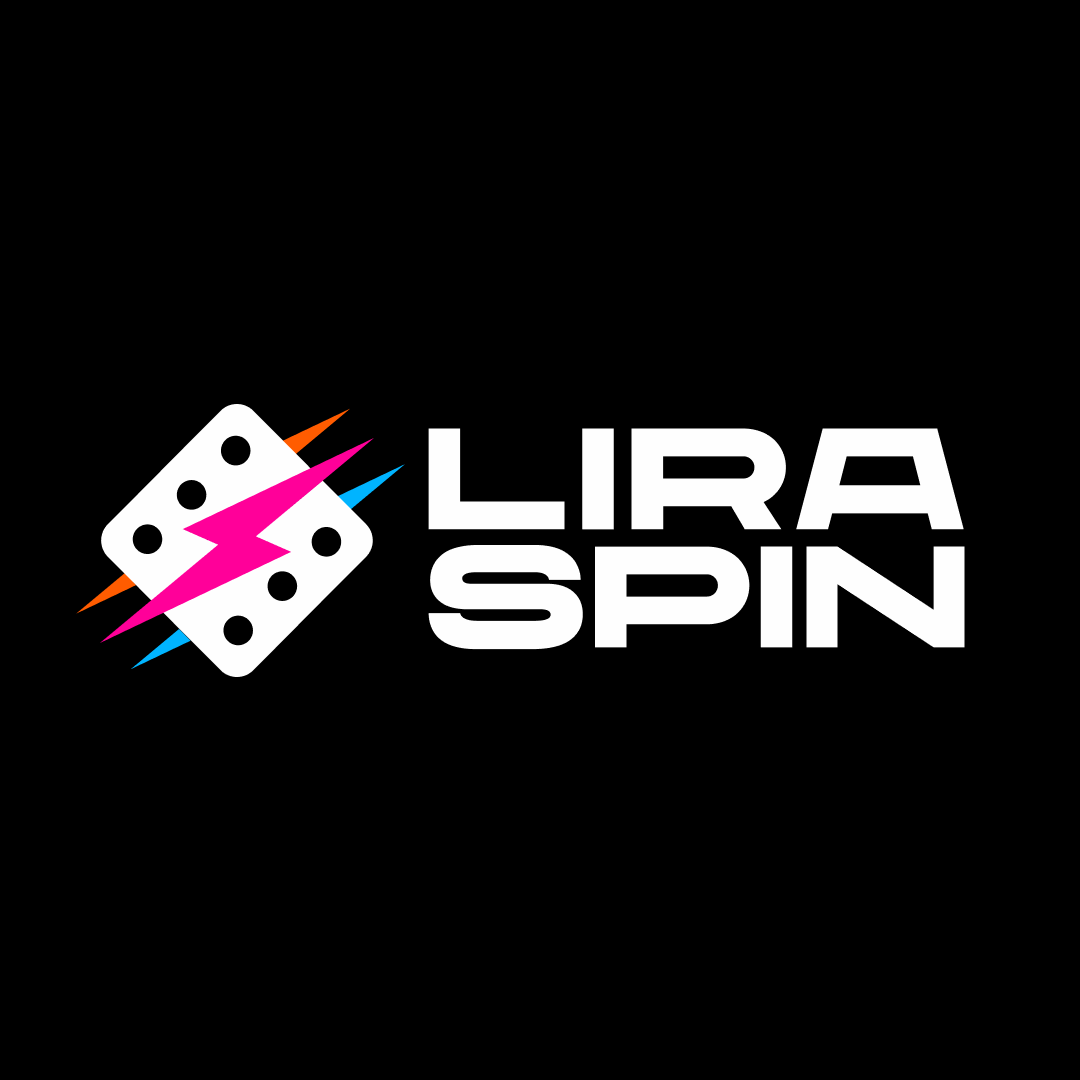
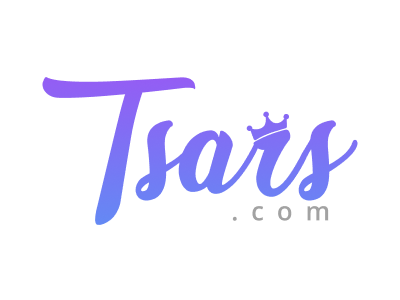
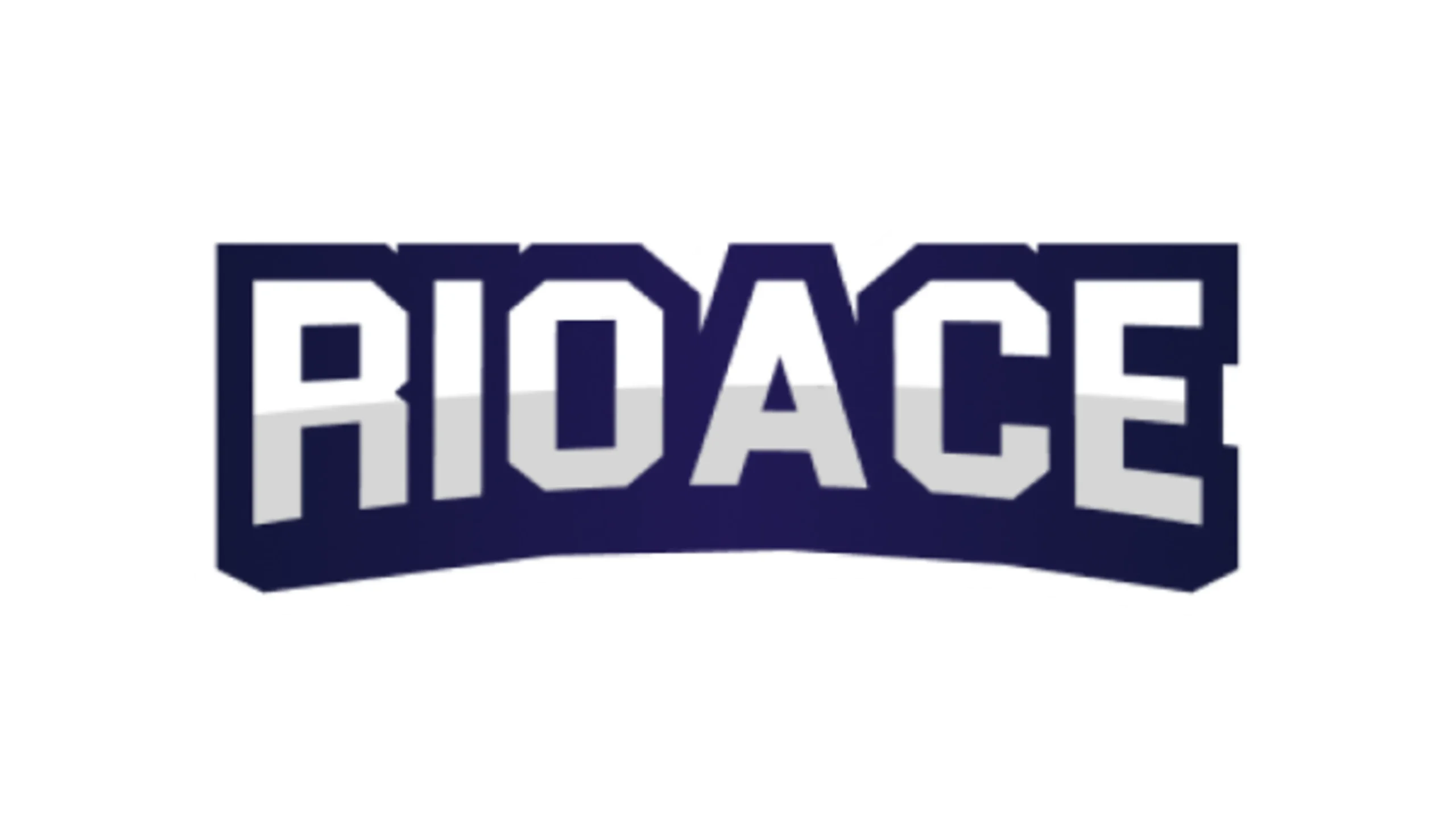

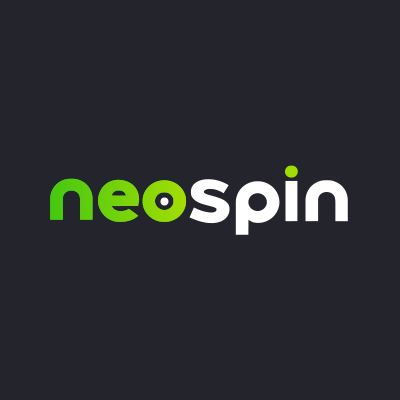
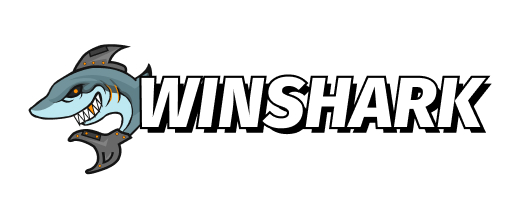

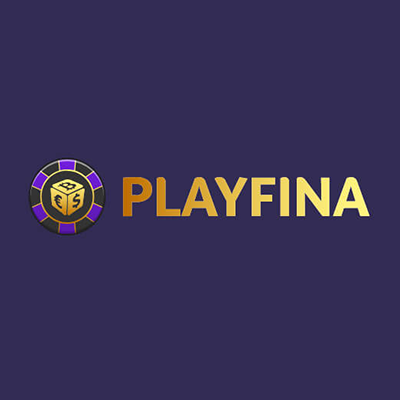
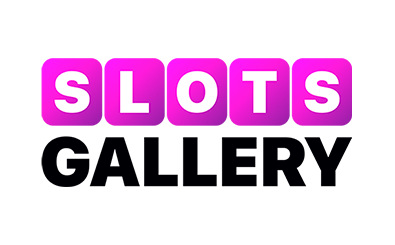

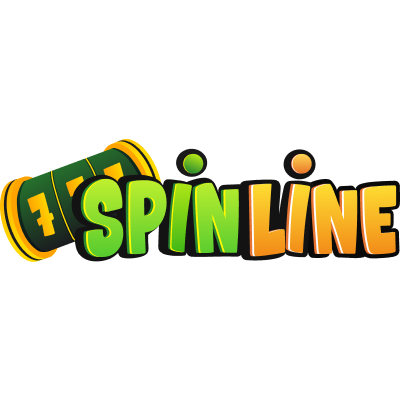
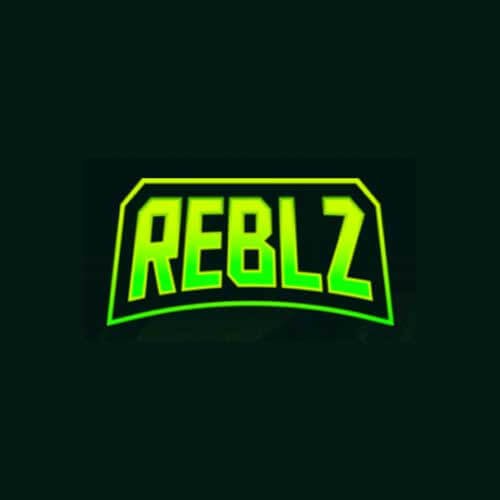
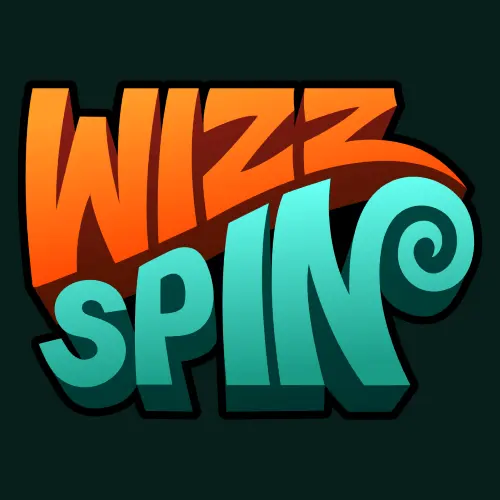


Hvad betyder “uden om ROFUS”?
Begrebet “uden om ROFUS” bruges om casinoer, der ikke benytter det danske ROFUS-system. ROFUS står for Register Over Frivilligt Udelukkede Spillere og er administreret af Spillemyndigheden. Når et casino er “uden om ROFUS”, betyder det, at casinoet ikke er omfattet af den danske selvudelukkelsesordning – typisk fordi det ikke har dansk licens. Nedenfor forklarer vi kort, hvad ROFUS er, rydder misforståelser af vejen og ser på, hvorfor nogle spillere søger casinoer uden om ROFUS.
Kort om ROFUS og formålet med selvudelukkelse
ROFUS (Register Over Frivilligt Udelukkede Spillere) er et nationalt register, hvor man frivilligt kan udelukke sig fra al pengespil med dansk licens. Formålet med ROFUS er at beskytte spillere, der oplever spilleproblemer, ved at give dem mulighed for at blive blokeret fra online casinoer og bookmakere i Danmark. Når du er tilmeldt ROFUS, kan du hverken logge ind på danske spillesider eller oprette nye spillekonti i udelukkelsesperioden. Registreringen sker digitalt med MitID gennem Spillemyndigheden, og udelukkelsen kan vælges for perioder på 24 timer, 1, 3 eller 6 måneder – eller permanent (min. 1 år). ROFUS er altså et værktøj til ansvarligt spil, som mange (over 60.000 pr. 2025) har benyttet for at begrænse deres spiladgang.
Misforståelser: “uden ROFUS” ≠ lovligt i Danmark
En udbredt misforståelse er, at “casino uden ROFUS” er en særlig godkendt type casino eller en måde at omgå loven på. Det er vigtigt at forstå, at “uden om ROFUS” ikke gør et casino lovligt i Danmark. Faktisk findes der ikke noget separat “ROFUS-licens” – enten har casinoet dansk licens (og skal dermed bruge ROFUS), eller også har det ikke dansk licens, og så er det per definition uden om ROFUS. Når nogen reklamerer med “casino uden ROFUS”, betyder det reelt et udenlandsk online casino uden dansk licens. Disse casinoer opererer uden for den danske lovgivning og selvudelukkelsesordning. Det er ikke ulovligt for dig som spiller at benytte dem (det kommer vi ind på senere), men de er ikke godkendt eller kontrolleret af Spillemyndigheden. Det betyder, at du som spiller hverken er beskyttet af de danske regler eller kan bruge ROFUS på disse sider. Kort sagt: “uden om ROFUS” er ikke et kvalitetsstempel eller en legal frizone – det er blot en betegnelse for casinoer, der ikke deltager i Danmarks selvudelukkelsessystem.
Hvorfor søger spillere casinoer uden om ROFUS?
Hvad får nogen til at kigge mod casinoer uden om ROFUS? Der kan være flere årsager:
- Selvudelukkelse: Nogle spillere har registeret sig i ROFUS pga. spilproblemer, men fortryder senere eller føler sig fristet til at spille igen. De søger udenlandske casinoer for at omgå deres selvudelukkelse (hvilket dog frarådes).
- Flere bonusser og spil: Udenlandske casinoer reklamerer ofte med store velkomstbonusser, hyppige kampagner, VIP-programmer og et bredere udvalg af spil end de dansk-licenserede. Danske regler begrænser bonusser (fx max én bonus til nye kunder), så nogle spillere lokkes af de mere generøse tilbud i udlandet.
- Mildere verificering og MitID-fri login: På danske casinoer skal man logge ind med NemID/MitID hver gang. Flere udenlandske sider markedsfører sig som “casino uden MitID” eller “uden registrering”, hvilket betyder, at man kan oprette en konto med blot e-mail/password uden det danske ID-login. For nogle er det en lettere proces og giver en følelse af anonymitet.
- Færre indskudsgrænser: I Danmark er det lovpligtigt at sætte personlige indskudsgrænser. Udenlandske casinoer har ikke samme krav, så nogle highrollere ser det som en fordel, at de kan indbetale og spille for større beløb uden automatisk stop.
- Betalingsmetoder og kryptovaluta: Udenlandske casinoer tilbyder ofte betalingsmetoder, der ikke altid findes hos danske udbydere – fx kryptovaluta (Bitcoin m.fl.) eller visse e-wallets. Dette kan tiltrække spillere, der ønsker at bruge disse metoder.
Det er vigtigt at pointere, at disse “fordele” hænger sammen med tilsvarende risici, som vi gennemgår senere. Ofte vil det øgede udvalg af bonusser og fravær af ROFUS-beskyttelse betyde, at man som spiller står mere på egen hånd og skal være ekstra opmærksom på sine spillevaner.
Lovlighed i Danmark
Hvad siger loven om casino uden dansk licens?
I Danmark er det ved lov påkrævet, at en spiludbyder har en tilladelse fra Spillemyndigheden for at udbyde online casino eller væddemål til danske spillere. Det betyder, at alle casinoer med base i Danmark eller som målretter sig mod danske kunder (fx ved at have dansk sprog og markedsføring) skal have en dansk spillelicens. Casinoer uden om ROFUS opererer uden denne licens. For udbyderen er det ulovligt at udbyde spil i Danmark uden tilladelse – Spillemyndigheden kan få disse sider blokeret og i teorien straffe udbyderen for overtrædelse af spilleloven. Spillemyndigheden foretager jævnligt blokering af udenlandske casinosider via retskendelser, hvor internetudbydere pålægges at lukke adgangen for danske IP-adresser. Hvis du støder på en side med en besked fra Spillemyndigheden om blokering, skyldes det netop, at siden ikke har licens i Danmark.
Er det ulovligt for dig som spiller? Nej, som almindelig dansk spiller begår du ikke en strafbar handling ved at spille på et udenlandsk casino uden dansk licens. Lovgivningen rammer udbyderen, ikke spilleren. Du risikerer altså ikke bøde eller straf for at oprette en konto og spille hos et “casino uden licens”. Det står dig frit for at besøge disse hjemmesider, så længe de accepterer danske spillere. Dog foregår det på eget ansvar – du bevæger dig uden for den beskyttelse, den danske licens ellers giver. Og vær opmærksom: hvis en side er officielt blokeret i Danmark af myndighederne, er det et klart tegn på, at den ikke overholder dansk lov. Man kan teknisk set omgå blokeringer med VPN eller lignende, men det anbefales ikke af sikkerheds- og lovlighedshensyn (blokeringen er der for at beskytte forbrugerne).
Konsekvenser ved at spille uden for licensen
Selvom du som spiller ikke bliver straffet af myndighederne, har det konsekvenser at vælge et casino uden licens og ROFUS:
- Ingen klageadgang i Danmark: Hvis du får en konflikt med casinoet – fx de nægter at udbetale en gevinst eller manipulerer spillet – kan du ikke klage til den danske Spillemyndighed. Med en dansk licens kan spillere normalt indgive klage til myndigheden eller forbrugerombudsmanden. Det kan du ikke med et udenlandsk casino. Du kan prøve hos casinoets egen licensgiver (hvis det har en udenlandsk licens), men det er ofte mere besværligt og usikkert.
- Manglende spillerbeskyttelse: Danske regler kræver en række beskyttelsesforanstaltninger: ROFUS, indskudsgrænser, ansvarlig spil-information, verificering af alder/identitet osv. Udenlandske casinoer uden dansk licens er ikke underlagt disse krav. Nogle regulerede EU-casinoer har lignende foranstaltninger frivilligt, men niveauet af beskyttelse varierer. Du kan derfor opleve, at der ikke er samme fokus på ansvarligt spil, og det kan være lettere at komme ud i problemer (f.eks. bruge flere penge end planlagt).
- Usikker retshåndhævelse: Hvis noget ulovligt eller svindelagtigt foregår på et udenlandsk casino (fx bedrageri eller brud på aftaler), er det svært at få danske myndigheder til at hjælpe, da sitet ligger uden for dansk jurisdiktion. Du kan stå med tab uden mulighed for at få dem erstattet.
- Tekniske blokeringer og betaling: Som nævnt kan websitet blive blokeret i Danmark uden varsel. Desuden har danske banker og betalingsudbydere mulighed for at afvise transaktioner til ulovligt spil. Det kan betyde, at dine ind- eller udbetalinger kan blive stoppet eller forsinket, hvis de bliver flaget som gambling til en ikke-godkendt udbyder.
Opsummeret er det lovligt at spille på et casino uden om ROFUS, men du bør være bevidst om, at du mister det sikkerhedsnet, som det regulerede danske marked giver. Alt ansvar for fair spil, sikkerhed og ansvarligt spil hviler på casinoet selv – og i sidste ende på dig som forbruger.
Skat af gevinster
Skattefri gevinster – hvornår?
En af de vigtigste forskelle på at spille hos danske og udenlandske casinoer er beskatningen af gevinster. Hos et dansk licenseret online casino er alle gevinster skattefrie for spilleren. Det skyldes, at danske udbydere betaler afgift af spilleindtægterne til staten, så du skal ikke betale personlig indkomstskat af dine casinogevinster. Det samme gælder gevinster fra lotterier og væddemål godkendt i Danmark – spilleren beskattes ikke. Kort sagt: spiller du på en side med dansk licens, skal du aldrig tænke på skat af dine gevinster, uanset beløbets størrelse.
Når det kommer til udenlandske casinoer, afhænger skatten af flere faktorer. Skattereglerne skelner især mellem om casinoet har licens i et EU/EØS-land eller ej. Ifølge Skattestyrelsen er en gevinst fra et udenlandsk onlinespil skattefri, hvis følgende betingelser er opfyldt:
- Spillesiden har hjemme (er registreret) i et EU- eller EØS-land.
- Udbyderen har gyldig licens til at udbyde spil i det pågældende land.
- Spillet er godkendt og kontrolleret af en offentlig myndighed i det land.
- Den pågældende type spil må lovligt udbydes i Danmark.
Hvis alle disse betingelser er opfyldt, er gevinsterne også skattefrie for en dansk spiller – selvom casinoet ikke har dansk licens. I praksis betyder det, at gevinster fra mange EU-licenserede casinoer er skattefri, fordi fx Malta og Estland har spillemyndigheder, som godkender spillene (og spilletyperne også findes lovligt i DK). Omvendt: hvis casinoet ikke opfylder kravene – typisk hvis det ligger uden for EU/EØS eller ikke er offentligt reguleret – så er din gevinst skattepligtig i Danmark.
EU-licens vs. udenfor EU – hvad er forskellen?
For danske spillere er forskellen på et EU-licenseret casino og et udenlandsk uden for EU central for skatten:
- EU/EØS-licens: Casinoer licenseret i fx Malta (MGA-licens) eller Estland (EMTA-licens) betaler typisk ikke skat i Danmark, da de opfylder betingelserne nævnt ovenfor. Fra myndighedernes side ses gevinsten som vundet i et “godkendt spil i et EU-land”. Resultat: Gevinsten er skattefri for dig.
- Licens uden for EU/EØS: Casinoer med f.eks. Curaçao-licens eller andre oversøiske licenser falder uden for EU-reglen. Gevinster herfra betragtes som udgangspunkt som personlig indkomst i Danmark og er skattepligtige. Det betyder, at du selv skal angive gevinsten på din selvangivelse og betale skat af beløbet.
Mange tror fejlagtigt, at “EU-licens = altid skattefri”. Som hovedregel er det rigtigt, men det kræver som nævnt, at casinoet reelt er licenseret og kontrolleret i det pågældende EU-land. Man bør sikre sig, at casinoet har en officiel EU-licens (ikke bare påstår det). Hvis betingelserne ikke er opfyldt, kan Skat kræve skat af gevinsten, uanset om siden ligger i EU. Derfor: tjek casinoets licensforhold nøje, før du antager at en gevinst er skattefri.
Eksempler og konsekvenser ved forkert indberetning
Lad os illustrere med et par eksempler:
- Du vinder 50.000 kr. på et casino med maltesisk licens (MGA). Casinoet opfylder EU-kravene, så du skal ikke betale skat af gevinsten. Du beholder hele beløbet.
- Du vinder 50.000 kr. på et casino med Curaçao-licens. Casinoet ligger uden for EU, så gevinsten er skattepligtig i DK. Hvis du er almindelig lønmodtager, vil gevinsten blive beskattet som ekstra indkomst (personlig indkomst), hvilket kan nærme sig ca. 37-42% afhængig af din indkomst. Dvs. du kan skulle af med måske 18-20.000 kr. i skat af de 50.000 kr.
Det er dit eget ansvar at angive skattepligtige gevinster til Skattestyrelsen. Casinoer uden dansk licens indberetter ikke noget til de danske myndigheder, så hvis du ikke selv angiver gevinsten, opdager Skat det måske ikke – men hvis de gør, risikerer du efterbetaling af skat samt mulige bøder for manglende indberetning. Vores råd er: spil aldrig for mere, end at du også kan betale skatten af gevinsten, hvis du vælger et casino uden for EU. Overvej om gevinsten stadig er attraktiv efter skat, og husk at få styr på det formelle.

(Infografik: Beslutningstræ for skattepligt – gevinster fra EU-licenserede casinoer er skattefri for danske spillere, mens gevinster fra øvrige skal opgives til Skat).
På Skattestyrelsens hjemmeside kan du læse de præcise regler om gevinster. Er du i tvivl om skatten for en given gevinst, så kontakt evt. Skattestyrelsen direkte for vejledning – hellere spørge en gang for meget end risikere skattesmæk.
Licenser og sikkerhed
Når man spiller online, er spillelicensen casinoets vigtigste “kvalitetsstempel”. Licensen fortæller, hvilken myndighed der har godkendt og fører tilsyn med casinoet. Her ser vi på de mest almindelige licenser blandt casinoer uden om ROFUS – både inden for EU og udenfor – og hvordan de påvirker din sikkerhed som spiller. Vi giver også en tjekliste til, hvad du selv bør undersøge for at sikre, at casinoet er trygt og fair.
EU/EØS-licenser: MGA, EMTA, Cypern m.fl.
Flere europæiske lande har deres egne spillemyndigheder, og en del udenlandske casinoer som henvender sig til danskere opererer under en EU-licens. De mest kendte er:
- Malta Gaming Authority (MGA): Malta har en af de mest respekterede licenser i Europa. Et casino med MGA-licens er underlagt relativt strenge krav til bl.a. kapital, fair spil (RNG-certificering) og ansvarligt spil (MGA kræver fx at udbyderen tilbyder selvudelukkelse på deres platform, selvom det ikke er ROFUS). Hvis du oplever problemer med et MGA-casino, kan du klage til MGA.
- EMTA (Estland): Estlands skattemyndighed udsteder licenser til online casino. Kravene ligner MGA’s, om end Estland er mindre udbredt internationalt. En del nye casinoer har estisk licens. Fordelen for spillere er, at licensen er inden for EU (skattefrit), og at der er et vist statsligt tilsyn. Klagevej for spillere går gennem Estonian Tax and Customs Board.
- Cyperns National Betting Authority (NBA): Cypern udsteder også licenser til online spil. Den cypriotiske licens er mindre udbredt end MGA, men visse casinoer opererer under den. Kravene inkluderer også anti-hvidvask, spillerbeskyttelse og audits. Da Cypern er EU-medlem, vil gevinster herfra være skattefri for danske spillere. Mulighederne for at klage afhænger af deres lokale proces, men der findes en myndighed at henvende sig til.
Generelt giver en EU-licens en vis tryghed: Casinoet er lovligt i licenslandet, spillene kontrolleres for fairness, og der findes regler for bl.a. hvidvask og ansvarligt spil. Dog kan standarderne variere – Malta er kendt for høj standard, mens nogle mindre lande måske ikke håndhæver reglerne lige så strengt. Alligevel er EU-licenser generelt mere betryggende end ingen licens eller obskure licenser, da de trods alt kræver, at casinoet opfylder visse minimumskrav for sikkerhed.
Licenser uden for EU: Curaçao, Anjouan m.fl.
En stor del af “casino uden om ROFUS” har licens fra Curaçao i Caribien. Curaçao-licensen er populær, fordi den traditionelt har været nem og billig at få for udbyderne. Den giver dog ikke samme grad af spillerbeskyttelse som EU-licenser. Curaçaos tilsyn med casinoerne har ry for at være lempeligt – fx er der færre krav til ansvarligt spil, og det kan være svært som spiller at få hjælp ved en tvist. Når det er sagt, opererer mange velkendte casinoer under Curaçao-licens, og en del af dem driver forretning reelt og sikkert. Men risikoen for useriøse aktører er højere her end under strengere licenser.
En nyere licens, der er begyndt at dukke op, er fra Anjouan (en ø under Komorerne). Anjouan-licensen markedsføres som et alternativ til Curaçao, men da den er ny, vides ikke meget om tilsynsniveauet. Generelt gælder for licenser uden for EU/EØS, at spillerbeskyttelse og klagemuligheder kan være begrænsede. Hvis et casino med en eksotisk licens snyder dig, kan det være svært at finde ud af, hvilken myndighed man skal kontakte – og om de overhovedet vil hjælpe.
Bemærk også, at gevinster fra disse udenfor-EU casinoer (Curaçao, Anjouan osv.) som nævnt er skattepligtige i Danmark. Det er endnu en grund til, at mange spillere foretrækker EU-licenserede sider frem for de helt offshore-licenserede.
Sådan tjekker du om et casino er sikkert
Uanset licensen er det en god idé selv at lave et sikkerhedstjek, før du sætter penge ind på et nyt casino uden ROFUS:
- Verificér licensen: Kig efter oplysninger om licens i casinoets footer eller “Om os”-sektion. Et troværdigt casino vil tydeligt nævne licensudsteder (fx MGA, Curacao eGaming) og licensnummer. Du kan krydstjekke på licensmyndighedens hjemmeside, om licensen er gyldig.
- RNG og spilcertificering: På sikre casinoer testes spil for retfærdighed. Tjek om siden nævner uafhængige testere som eCOGRA, iTechLabs eller GLI. Et segl eller certifikat fra sådanne firmaer tyder på, at spiludfald (RNG) er auditeret for at sikre, at de ikke snyder.
- Kryptering og data: Sørg for, at hjemmesiden bruger HTTPS (låst hængelås-ikon i browseren). Seriøse casinoer beskytter dine data med SSL-kryptering, så personlige oplysninger og betalingsinfo ikke lækker.
- Ansvarligt spil-information: Tjek om casinoet tilbyder muligheden for at sætte indskudsgrænser, få tidsbegrænsninger eller selvudelukke dig fra deres platform. De bedste udenlandske casinoer har ofte en sektion for Responsible Gaming med råd og hjælp, selvom de ikke er under ROFUS. Mangler alt om ansvarligt spil, er det et rødt flag.
- Kundeanmeldelser og omdømme: Lav en hurtig søgning på casinonavnet + “review”. Se hvad andre spillere siger. Vær kritisk – nogle nye casinoer kan have få anmeldelser. Men gentagne meldinger om udbetalingsproblemer eller dårlig support bør tages seriøst.
Licenser og tilsyn – sammenligning
| Licens | Tilsynsniveau | Klagevej for spiller | Ansvarligt spil-krav |
|---|---|---|---|
| Danmark (Spillemyndigheden) | Meget højt (strenge regler, løbende kontrol) | Ja – klage til Spillemyndigheden eller Center for Ludomani | Meget omfattende (ROFUS, obligatoriske grænser, etc.) |
| Malta (MGA) | Højt (EU-standard, audits af økonomi og spil) | Ja – klageformular hos MGA | Ja – påkrævet at tilbyde selvudelukkelse, limits mm. |
| Estland (EMTA) | Mellem/Højt (EU-tilsyn, dog mindre myndighed) | Begrænset – via estisk myndighed (sprogbarriere mulig) | Delvist – kræver ansvarlig spil info, men ikke ROFUS |
| Curaçao (forsk. master-licenser) | Lavt (minimal regulering historisk) | Sjældent – klager skal til licenshaver, ofte ingen hjælp | Næsten intet – op til casinoet selv |
| Anjouan (Komorerne) | Ukendt/formentlig lavt (ny licens uden track record) | Uklar – ingen etableret klageinstans kendt | Ukendt – formodentlig få eller ingen krav |
Tabellen: Sammenligning af licenser og forbrugerbeskyttelse. Som det ses, giver de europæiske licenser generelt bedre vilkår for dig som spiller end licenser uden for EU.
Brug altid lidt tid på at undersøge licensen, før du stoler på et udenlandsk casino. En licens fra fx MGA, UK Gambling Commission eller Spillemyndigheden i et EU-land er en indikator for, at casinoet er seriøst. Omvendt, hvis du ikke kan finde nogen licensinfo overhovedet på siden, eller licensen lyder som noget obskurt (eller måske er udløbet), bør alarmklokkerne ringe – så er det sandsynligvis ikke et sikkert sted at sætte penge.
KYC/AML, MitID og betalingsmetoder
I denne sektion ser vi på nogle praktiske aspekter ved at spille på casino uden om ROFUS: Hvad sker der med identifikation og KYC (Know Your Customer) kontrol, når du ikke logger ind med MitID? Hvordan foregår ind- og udbetalinger på udenlandske sider, og hvilke metoder kan du bruge? Og hvad betyder det egentlig, når et casino reklamerer med “uden registrering” eller “uden MitID”?
KYC-krav og verificering af din konto
Alle licenserede casinoer – også dem uden dansk licens – har pligt til at overholde KYC/AML-regler (Know Your Customer / Anti Money Laundering). Det indebærer, at de på et eller andet tidspunkt skal verificere din identitet for at forebygge hvidvask, svindel og sikre, at du er over 18. På danske casinoer sker en stor del af denne verificering automatisk gennem NemID/MitID ved login, og CPR-validering i baggrunden. Men hos et udenlandsk casino uden MitID skal du oftest selv indsende legitimation, før du kan få udbetalt større gevinster.
Typiske KYC-dokumenter, du kan blive bedt om at levere, er: kopi af pas eller kørekort (ID-bevis), kopi af en nylig adresseopgørelse (fx en regning eller bankudskrift som bevis på din bopæl) og dokumentation for den anvendte betalingsmetode (fx billede af dit kreditkort eller screenshot af din e-wallet). Mange casinoer har et beløbsloft – f.eks. skal du verificere dig, når du samlet har indbetalt eller hævet over €2.000 (ca. 15.000 kr.), jf. EU’s hvidvaskningsregler. Andre kræver KYC inden første udbetaling uanset beløb.
Vær ikke overrasket, hvis et casino, der ellers lod dig oprette konto uden ID, pludselig stopper din første større udbetaling og beder om papirarbejde. Det er standardprocedure og et godt tegn, fordi det betyder, at casinoet overholder lovens krav. Useriøse casinoer reklamerer nogle gange med “no verification casinos” – men pas på: enten er det falsk reklame (før eller siden vil de verificere), eller også gambler de selv med loven (hvilket ikke lover godt for deres troværdighed). Vær forberedt på KYC, og undlad at spille hos et casino, hvis du ikke er tryg ved at uploade personlige dokumenter dertil.

(Diagram: Sammenhæng mellem KYC og udbetaling – casinoer med grundig ID-verificering kan have lidt langsommere første udbetaling, men til gengæld høj sikkerhed. Casinoer med minimal KYC kan udbetale hurtigt i starten, men kræver ofte ekstra tjek ved større beløb, hvilket kan forsinke processen.)
Betalingsmetoder på udenlandske casinoer
Etablerede udenlandske casinoer tilbyder som regel et bredt udvalg af betalingsmetoder. Du kan typisk indbetale med Visa/Mastercard kredit- eller debetkort – bemærk dog, at nogle danske banker afviser transaktioner til udenlandske spiludbydere, så kortbetaling er ikke altid garanteret. Derudover er elektroniske tegnebøger (e-wallets) meget populære: Skrill og Neteller accepteres på de fleste casinoer uden licens, og de giver hurtige ind- og udbetalinger (ofte inden for få minutter for indbetaling og samme dag for udbetaling).
Mange udenlandske sider understøtter også direkte bankoverførsel via tjenester som Trustly eller Zimpler, der gør det muligt at logge ind med bank og overføre penge øjeblikkeligt. Disse tjenester har tidligere været knyttet til NemID/MitID i Norden, men på udenlandske casinoer vil de typisk fungere via din netbank uden MitID (siden er jo ikke integreret med de danske systemer). Vær dog opmærksom på, at ikke alle danske banker samarbejder med disse betalingsgateways for ureguleret spil.
En anden kategori er kryptovaluta: På mange Curaçao-licenserede casinoer kan du både ind- og udbetale med Bitcoin, Ethereum, Litecoin og andre coins. Kryptobetalinger giver en vis anonymitet og meget hurtige transaktioner globalt, hvilket tiltaler nogle spillere. Omvendt kan værdien af krypto svinge, og hvis du ikke er fortrolig med wallets, kan det være besværligt. Husk også, at hvis du vinder i krypto, kan både gevinst og kursgevinst potentielt udløse skat – det gør det kompliceret.
Generelt gælder: Tjek hvilke valutaer og metoder casinoet understøtter, før du opretter dig. Er DKK en mulighed, eller skal du spille i EUR/USD? Hvis DKK ikke findes, har du valutavekslingsomkostninger på dine ind- og udbetalinger. Tjek også om casinoet har gebyrer på ind-/udbetaling (de fleste tager ikke gebyr, men det varierer). Og endelig – udbetalingstiden: Et godt casino behandler udbetalinger inden for 24-48 timer, men hos nogle useriøse kan det trække ud i uger. Ofte vil e-wallets og krypto være de hurtigste metoder til udbetaling, mens kort og bank kan tage et par hverdage.
“Casino uden registrering/MitID” – hvad betyder det?
Flere websites bruger slogans som “casino uden registrering” eller “uden MitID”. Det lyder fristende, men lad os afmystificere det:
- Når der står “uden registrering”, betyder det typisk, at casinoet benytter en løsning, hvor du ikke skal udfylde lange formularer ved oprettelse. I nogle lande (fx Sverige) kan man spille “uden konto” ved at indbetale via banken (BankID), hvorefter ens bank-login faktisk opretter kontoen i baggrunden. For danskere fungerer det ikke helt på samme måde hos udenlandske sider, da vi ikke kan bruge MitID der. Så “uden registrering” betyder i praksis, at du kun skal oplyse fx e-mail og lave en adgangskode – i stedet for at afgive CPR-nummer og NemID. Du får stadig en konto, den oprettes bare med færre oplysninger til start.
- “Casino uden MitID” er simpelt hen et casino, hvor du ikke skal bruge MitID for at logge ind. Det gælder jo alle udenlandske casinoer, da MitID er et dansk system forbeholdt licenserede udbydere. Fordelen er igen, at login-processen kan føles hurtigere. Ulempen er, at dit ID ikke er bekræftet ved login – dvs. du kan være mindre sikker på, at du er den eneste, der kan tilgå din konto (MitID giver jo en stærk to-faktor-sikkerhed). Og casinoet har heller ikke verificeret din alder ved login.
Man kan sige, at “uden MitID” primært er et marketing-budskab. Det indikerer ikke noget særligt om casinoets kvalitet, kun at det er udenlandsk. Selvom du kan komme i gang hurtigere, skal du stadig igennem KYC senere (som vi har beskrevet). Og sikkerhedsmæssigt er MitID-frie casinoer en smule mere udsatte for fx, at andre kunne logge ind på din konto hvis de får fat i din e-mail/kode. Vi anbefaler altid, at du selv aktiverer evt. to-faktor-login på kontoen, hvis casinoet tilbyder det (nogle lader dig bruge Google Authenticator eller SMS-kode for ekstra sikkerhed).
Alt i alt: “Uden registrering” betyder nem start, men reelt oprettes der en konto på dig i baggrunden. Og “uden MitID” er vilkåret på alle casinoer uden om ROFUS – nyd bekvemmeligheden, men vær opmærksom på sikkerheden og de førnævnte KYC-krav, der nok skal komme før eller siden.
Bonusser og vilkår
Bonusser kan være et trækplaster for casinoer uden om ROFUS, fordi de udenlandske sider ofte har friere rammer til at tilbyde store og hyppige tilbud. Det er dog ekstra vigtigt at forstå bonusvilkårene, når man spiller uden for Danmark, da de kan være mere komplekse eller restriktive end dem, vi kender hjemmefra. Lad os se på typiske bonus-typer, de vigtigste vilkår du skal kende, og hvilke røde flag du bør holde øje med i bonusbetingelserne.
Typer af bonusser på udenlandske casinoer
Udenlandske casinoer uden dansk licens tilbyder et væld af bonusser. Her er nogle af de mest almindelige typer:
- Velkomstbonus: Næsten alle casinoer giver nye spillere en velkomstbonus. Det kan være en indbetalingsbonus (fx 100% ekstra op til et vist beløb) kombineret med free spins. På nogle udenlandske sider ser man endda ekstreme velkomsttilbud som 200-400% bonus. Husk dog, at meget store bonusser ofte har tilsvarende skrappe krav (se nedenfor).
- Free spins: Gratis spins på spillemaskiner – enten som del af velkomstpakken eller løbende kampagner. Free spins kan komme uden indskud (no deposit free spins) eller kræve indbetaling. Gevinster fra free spins kommer typisk med omsætningskrav (medmindre det er “free spins uden omsætningskrav”, hvilket nogle reklamerer med).
- Cashback: En cashback bonus giver dig en procentdel af dine tab tilbage, typisk ugentligt. Fx 10% cashback hver mandag på det, du tabte ugen før. Fordelen er, at det reducerer netto-tabet lidt, men tjek om cashback udbetales kontant eller som bonus med krav.
- Loyalitetsprogrammer/VIP: Mange udenlandske casinoer har VIP-klubber eller loyalitetsprogrammer, hvor du samler points for indsatser, stiger i niveau og låser op for fordele – som personlige bonusser, højere cashback, gaver osv. VIP-systemer kan være sjove, men de belønner typisk meget spil, så pas på at de ikke ansporer til overforbrug.
- No wagering-bonusser: Enkelte casinoer tilbyder “bonus uden omsætningskrav”. Det er sjældent og som regel i små beløb, men det betyder at bonuspengene eller free spins-gevinster er dine med det samme. Disse bonusser er naturligvis mest favorable for spilleren.
Vigtige vilkår: omsætningskrav, begrænsninger m.m.
Hver bonus kommer med vilkår og betingelser, og du gør klogt i at læse dem. De vigtigste nøglepunkter er:
- Omsætningskrav: Det antal gange du skal spille din bonus (ofte plus indbetaling) igennem, før du kan hæve gevinster. På udenlandske casinoer kan omsætningskravet variere fra lave 20x til høje 50-60x. F.eks. ved 40x omsætningskrav og en 100 kr. bonus skal du satse 4.000 kr. før bonusen frigives. Tjek også om kravet gælder både indskud og bonus (”40x bonus + deposit”) eller kun bonus.
- Tidsbegrænsning: Bonusser har en udløbsdato. Typisk skal omsætningskravet klares inden for 7, 14 eller 30 dage. Hvis du ikke når det, annulleres bonus og gevinster. Vælg kun en bonus, hvis du realistisk kan nå at omsætte den inden for tidsfristen.
- Maksimal indsats: Under bonusspil er der ofte loft på, hvor stort et bet du må lave ad gangen (typisk 5€ eller ca. 37 kr. pr. spin/hånd). For høje indsatser kan annullere bonusen.
- Spilbidrag: Ikke alle spil tæller fuldt ud mod omsætning. Slots tæller som regel 100%, mens bordspil, live casino og især roulette/blackjack ofte kun tæller fx 10% eller slet ikke.
- Indbetalingsmetoder: Nogle bonusser udelukker visse betalingsmetoder. Et klassisk eksempel: “Skrill og Neteller indbetalinger kvalificerer ikke til velkomstbonus”.
- Flere bonusser ad gangen: Mange casinoer tillader kun én aktiv bonus ad gangen. Forsøg på udbetaling med aktiv bonus ender typisk med tab af bonus.
Røde flag i bonusbetingelser
Visse bonusvilkår kan være tegn på et useriøst tilbud eller casino. Hold øje med følgende røde flag:
- Ekstremt høje omsætningskrav (50x+).
- Komplekse eller uklare regler og vigtig info “med småt”.
- Bonus låser din indbetaling indtil kravene er opfyldt.
- Maksimumgevinst på bonus (loft for udbetaling fra bonusspil).
- Skjulte gebyrer/krav for udbetaling af bonusgevinster.
Tjekliste: 10 ting før du accepterer en bonus
- Læs hele bonusbetingelsen igennem, inkl. det med småt.
- Tjek omsætningskravet (hvor mange gange og af hvilket beløb).
- Notér tidsfristen for at opfylde kravet.
- Husk grænsen for maks. indsats pr. spin/hånd under bonus.
- Se hvilke spil der bidrager til kravet – spil de tilladte spil.
- Undersøg om nogle spil eller kategorier er udelukket.
- Dobbelttjek om din indbetalingsmetode er gyldig til bonus.
- Tjek om der er loft på udbetaling af gevinster fra bonus.
- Forstå hvordan din indbetaling påvirkes: kan du hæve når som helst?
- Spørg support, hvis noget er uklart, inden du spiller.
Ved at følge tjeklisten undgår du de værste overraskelser. Bonusser kan give ekstra værdi og forlænge spilletiden, men de er aldrig “gratis penge” – du betaler for dem gennem omsætningen. Betragt bonusser som en sjov ekstra mulighed, ikke hovedårsagen til at spille. Og husk: Du kan altid vælge at spille uden en bonus, hvis du vil kunne hæve dine gevinster med det samme uden krav.
Spiludvalg og funktioner
Udvalget af spil og særlige funktioner på en casino-platform kan have stor betydning for din oplevelse. Casinoer uden om ROFUS benytter ofte de samme spiludviklere som danske casinoer – og mere til. Her ser vi på, hvilke spil du typisk finder, hvad begreber som RTP og volatilitet betyder for dit spil, samt hvordan turneringer, gamification og VIP-programmer kan påvirke din spilleadfærd.
Spillemaskiner, bordspil, live casino m.m. – og hvad er RTP/volatilitet?
De fleste udenlandske casinoer tilbyder et kæmpe udvalg af spillemaskiner (slots) – ofte tusindvis af titler fra et hav af spiludbydere (NetEnt, Microgaming, Play’n GO, Pragmatic Play osv.). Du vil se alt fra klassiske 3-hjuls frugtmaskiner til moderne video slots med features, bonusbaner og måske “Megaways” mekanik. Typisk er udvalget større end på danske sider.
Bordspil som roulette, blackjack, baccarat og poker-varianter findes både i softwareversioner (mod computer) og som live casino, hvor rigtige dealere streamer spillet til dig.
RTP og volatilitet: Når du spiller slots (eller andre casinospil) vil begreberne RTP (Return To Player) og volatilitet dukke op. RTP er teoretisk tilbagebetalingsprocent (fx 96%) på langt sigt. Høj volatilitet betyder sjældne men store gevinster; lav volatilitet betyder hyppige små gevinster. Vælg spil efter din risikoprofil.
En ting at bemærke: Reelt adskiller spiludvalget sig ikke drastisk fra danske casinoers, bortset fra at der kan være flere titler og nogle eksklusive spil. Hvis et udenlandsk casino ikke har de store kendte spiltitler, kan det være et dårligt tegn.
Turneringer, gamification og VIP – sjovt, men pas på adfærden
Mange casinoer uden om ROFUS differentierer sig med features som slot-turneringer, missioner/levels (gamification) og VIP-/loyalitetsprogrammer. De kan være underholdende, men er også designet til at øge spilletiden. Brug evt. “reality check”/påmindelser om tid og forbrug, hvis funktionen findes.
Fordele og ulemper ved at spille “uden om ROFUS”
Efter at have gennemgået alle disse aspekter, hvad er så bundlinjen? Her opsummerer vi de potentielle fordele og de væsentlige ulemper ved at bruge et casino uden om ROFUS.
Mulige fordele (med forbehold)
- Større udvalg af casinoer: Du er ikke begrænset til de ~50 licenserede sider i DK.
- Flere og større bonusser: Friere rammer til tilbud, reloads, free spins osv.
- Mere variation i spil: Niche-leverandører og spil, som ikke findes i DK.
- Ingen tvungne spilgrænser: Frihed, men kræver selvkontrol.
- Spil trods ROFUS: Tekniske muligheder for den selvudelukkede (frarådes).
- Kryptovaluta: Mulighed for BTC m.m.
Ulemper og risici
- Manglende ROFUS-beskyttelse og tværgående selvudelukkelse.
- Ingen dansk klageinstans eller tilsyn.
- Mulig skattepligt ved spil uden for EU.
- Risiko for useriøse aktører og udbetalingsproblemer.
- Mere friktion ved KYC og potentielle forsinkelser.
- Sprog/support ikke altid på dansk.
- Mindre login-sikkerhed uden MitID (brug unikke koder/2FA).
- Øget risiko for spilafhængighed.
Fordele vs. ulemper – overblik
| Fordele | Ulemper |
|---|---|
| Stort udvalg af casinoer og spil globalt | Ingen dansk regulering eller tilsyn |
| Mange bonusser og kampagner | Strenge omsætningskrav og vilkår |
| Ingen MitID-krav (hurtig login) | Lavere sikkerhed ved login |
| Kryptovaluta og flere betalingsformer | Skattepligt uden for EU |
| Spil trods ROFUS | Risiko for afhængighed |
| Ingen faste indskudsgrænser | Nemmere at overspille |
| VIP-fordele/loyalitet | Kan lokke til overforbrug |
| Skattefri gevinster i EU | Høj risiko på offshore-licenser |
Vi anbefaler at veje fordele og ulemper nøje og spille ansvarligt – stop ved faresignaler som jagt på tab, løgne om forbrug osv.
Ansvarligt spil og hjælp
Uanset hvor du spiller – med eller uden ROFUS – er ansvarligt spil altafgørende. Her opsummerer vi de redskaber, du har til rådighed for at bevare kontrollen, og hvor du kan søge hjælp.
ROFUS: perioder, fortrydelse og formål
Som tidligere nævnt er ROFUS en frivillig registrering, der udelukker dig fra al online gambling i Danmark. De perioder, man kan vælge, er:
- 24 timers kort pause.
- 1, 3 eller 6 måneder – tidsbegrænset selvudelukkelse.
- Permanent udelukkelse – mindst 1 år, hvorefter man aktivt kan anmode om at blive slettet.
Man kan ikke fortryde eller annullere en ROFUS-registrering før tid. Det er et effektivt værn mod ludomani i Danmark.
StopSpillet: rådgivning og kontakt
StopSpillet er en gratis hjælpelinje oprettet af Spillemyndigheden. Du kan ringe anonymt på 70 22 28 25 alle hverdage. Rådgiverne kan støtte dig og dine pårørende med information, værktøjer og henvisning til behandling.
Andre ressourcer: Ludomani-linjen (Center for Ludomani) og Gambling Therapy (international online støtte).
Selvkontrol-værktøjer: grænser, realitetstjek, timeouts
Forebyggelse er bedre end helbredelse – derfor bør alle spillere overveje at bruge selvkontrol-værktøjer, også på udenlandske casinoer:
- Indbetalings-/tabsgrænser: daglige, ugentlige eller månedlige lofter.
- Sessionsgrænse: automatisk logout efter valgt tidsrum.
- Reality check: tidsbaserede påmindelser om indsats/gevinster/tab.
- Timeouts: kortere selvudelukkelser på den enkelte side.
Hjælpelinjer og ressourcer
Vigtige kontakter:
- ROFUS – registrering og info om selvudelukkelse.
- StopSpillet – anonym hjælpelinje (tlf. 70 22 28 25).
- Spillemyndigheden – information om ansvarligt spil.
- Gambling Therapy – online støtte på dansk.
Gem disse kontakter eller del dem med en, der kan få brug for det.
Metode og kilder
Sådan er informationerne indsamlet og vurderet
Denne artikel er udarbejdet med fokus på faktuel nøjagtighed og opdateret viden. Vi har gennemgået gældende lovgivning, officielle udmeldinger fra Spillemyndigheden og sammenlignet oplysninger fra flere autoritative kilder. Vores research inkluderer tal fra 2024-2025. Påstande om juridiske eller skattemæssige forhold er krydstjekket med troværdige kilder.
Kildekritik og opdateringer
Informationen er samlet fra kilder med høj ekspertise: myndigheders hjemmesider, anerkendte rapporter og statistik. Markedet for online casino udvikler sig hele tiden; derfor revurderer vi artiklen løbende og retter ved behov.
Forfatterens baggrund og sidens troværdighed
Indholdet er skrevet af Sofie Nielsen (10+ års erfaring i iGaming med fokus på compliance og ansvarligt spil). Artiklen er senest opdateret september 2025 og fagligt gennemgået.
Kilder og ressourcer anvendt i artiklen:
- Spillemyndigheden – information om dansk licens, ROFUS og ansvarligt spil.
- ROFUS – Register for frivillig udelukkelse.
- Skattestyrelsen – regler om skattefrihed/pligt for casinogevinster.
- StopSpillet – hjælpelinje for ludomani.
- Malta Gaming Authority – om MGA-licensen og spillerklager.
- Curaçao eGaming – licensmyndighed i Curaçao.
Konklusion
Hovedpointer: Skal du spille uden om ROFUS?
Casino uden om ROFUS – altså at spille på et udenlandsk casino uden dansk licens – er lovligt for spilleren, men medfører risici og ansvar, som ikke findes på licenserede danske sider. Dine gevinster kan være skattepligtige (hvis siden ikke opfylder EU-krav), og du kan ikke bruge klagemuligheder eller ROFUS. Til gengæld får du adgang til flere bonusser, spil og betalingsmetoder – men disse “goder” kræver disciplin og omtanke.
Vi opfordrer ikke til at omgå ROFUS eller de danske regler. Overvej, om fordelene reelt opvejer ulemperne i din situation. For mange vil det sikreste valg være at benytte de danske casinoer med licens. Hvis du spiller uden for systemet, så sæt personlige grænser, tag pauser og hav styr på økonomien.
Alt i alt: spil ansvarligt og bevidst. Udenlandsk casino skal aldrig blive en måde at jage tab eller undslippe selvudelukkelse på.
Læs mere
Flere relaterede emner:
- Guide til ansvarligt spil
- Casino uden licens
- Casino uden NemID/MitID
- Skatteguide: casinogevinster
- Betalingsmetoder & KYC
Ofte stillede spørgsmål om casino uden om ROFUS (FAQ)
Hvad betyder “casino uden om ROFUS” i praksis?
Det betyder et online casino, som ikke benytter Danmarks ROFUS-system til selvudelukkelse. I praksis er det et casino uden dansk licens – altså typisk en udenlandsk spilleside. Når du spiller “uden om ROFUS”, spiller du på en side, der ikke kan se, om du er registreret i ROFUS. Det er ikke en særlig godkendelse eller licens – blot en beskrivelse af, at casinoet ligger uden for den danske regulering.
Er det ulovligt for danskere at spille hos udbydere uden dansk licens?
Nej. Den danske spillelov kriminaliserer udbyderen, ikke spilleren. Du bliver ikke straffet for at have en konto. Men siden kan blive blokeret i Danmark, og du har ikke samme beskyttelse som på licenserede danske casinoer.
Er gevinster skattefrie, hvis casinoet har EU-licens (fx Malta)?
Som hovedregel ja, hvis casinoet er licenseret i et EU/EØS-land, og spillet er godkendt der. Gevinster fra casinoer uden for EU (fx Curaçao) er som udgangspunkt skattepligtige i Danmark.
Kan man annullere sin ROFUS-registrering før tid?
Nej. Midlertidige perioder kan ikke afbrydes før tid. Permanent udelukkelse kan tidligst ophæves efter 1 år via aktiv anmodning.
Hvad er forskellen på ROFUS, NemID og MitID i spilsammenhæng?
ROFUS er frivillig selvudelukkelse (ikke identifikation). NemID/MitID er login/ID-løsninger, der bruges på licenserede danske sider til at verificere spillere og tjekke ROFUS.
Hvad er de største risici ved at spille uden om ROFUS?
Manglende beskyttelse (ingen tvungne grænser/selvudelukkelse), økonomisk risiko (skattepligt, større tab), og sikkerhed (sider der ikke udbetaler eller blokeres).
Hvad er “casino uden registrering”, og er det sikkert?
Betegner løsninger med hurtig oprettelse (ofte via betalingsudbyder). Sikkerheden afhænger af licens og operatør – KYC kræves stadig ved udbetaling.
Hvordan ved jeg, om en licens er ægte og aktiv?
Se efter licensnavn/nummer i footer, og tjek hos licensmyndigheden i deres register. En ægte licens er verificerbar og gyldig (ikke suspenderet).
Hvad sker der, hvis en udenlandsk side bliver blokeret i Danmark?
Du vil se en besked om blokering fra internetudbyderen. Adgang kan være vanskelig; contactér casinoets support for udbetaling af eventuelle midler. Blokeringen er et tegn på ulovlig drift ift. dansk lov.
Hvem kan hjælpe, hvis jeg oplever spilproblemer eller gæld?
StopSpillet (70 22 28 25), behandlingscentre for ludomani og økonomiske rådgivere. Ræk ud så tidligt som muligt.
Udbetalinger: hvorfor kræves ekstra KYC, og kan de forsinkes?
Ekstra KYC er lovkrav (hvidvask). Forsinkelser kan skyldes manglende dokumenter, interne tjek, weekend/helligdage – eller svag praksis hos udbyderen.
Må man bruge kryptovaluta til spil hos udenlandske udbydere?
Ja, hvis udbyderen accepterer det. Husk volatilitet, manglende chargeback og mulig skattepligt ved spil uden for EU.

